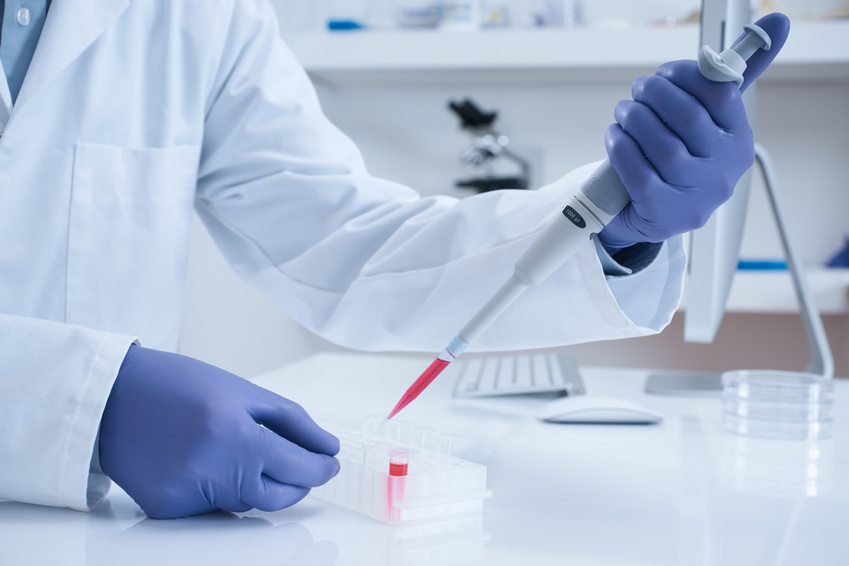
(Vienna, 18 July 2019) Even though autoimmune diseases are relatively common, we do not understand the underlying mechanisms in many cases. In a new study, the team led by Kaan Boztug's team has discovered a new rare disease and, in the process, has now identified a key molecule that is crucial for a balanced immune system and hence for the prevention of autoimmunity. Based on their findings, the researchers have identified a targeted therapy, which has been successfully used on an affected child. The results of the study have been published in the scientific journal Nature Communications.
What happens when the body is unable to distinguish between its own cells and invading pathogens? It attacks its own organs and tissues. The affected patients are suffering from a so-called autoimmune disease.
Normally the endogenous immune cells, including the so-called T-cells, learn to distinguish between the body's own cells and pathogens – this is referred to as immunotolerance. However, if this immunotolerance is disrupted, the T-cells attack the person's own body.
The earlier in life a serious autoimmunity occurs – therefore particularly in early childhood – the greater the possibility that there is an underlying inherited disorder of immune system regulation. Kaan Boztug's team at the Ludwig Boltzmann Institute for Rare and Undiagnosed Diseases (LBI-RUD), St. Anna Children's Cancer Research (CCRI), the Austrian Academy of Sciences (ÖAW) Research Center for Molecular Medicine (CeMM) and the Medical University of Vienna is studying the molecular causes of the most serious immune balance disorders. In this case, the researchers, working with colleagues from the USA, Sweden and the UK, investigated a young patient who, since birth, had been suffering from a particularly severe autoimmunity affecting various organs. In order to help the patient, Boztug and his research team used the very latest genetic techniques (Next-Generation Sequencing), thereby discovering this genetic defect for the very first time. "We noticed a change in the gene sequence for the protein DEF6, which causes an incorrect amino acid to be inserted into the protein. This is what is known as a Missense mutation, which alters the structure and breakdown of the protein," explains co-first author Birgit Höger. The scientists were therefore able to identify a new rare disease and subsequently show how DEF6 controls another key factor in immune balance, CTLA-4 – a mechanism which was hitherto completely unknown. On the basis of these findings, an existing approved drug was successfully used to treat the young patient. "We are confident that this treatment can also be successful for many other patients," says co-first author Nina Serwas. CTLA-4 only recently came to the public's attention when the Nobel Prize for Physiology or Medicine was awarded in 2018 for papers on cancer treatments involving the inhibition of negative immune responses. Apart from the potential for using CTLA-4 to treat autoimmune diseases, it also constitutes an important key for immunotherapies in the battle against cancer.
"The study of rare diseases provides knowledge about fundamental physiological processes in humans, thus helping us to find treatments in cases where conventional approaches fail. We are highly delighted with these findings, since they are extremely important for the understanding of autoimmunity – and at the same time potentially provide a new point of attack for immunotherapies to treat cancer," explains Kaan Boztug.
Service: Nature Communications
Serwas NK*, Hoeger B*, Ardy RC, Stulz SV, Sui Z, Memaran N, Meeths M, Krolo A, Petronczki ÖY, Pfajfer L, Hou TZ, Halliday N, Santos-Valente E, Kalinichenko A, Kennedy A, Mace EM, Mukherjee M, Tesi B, Schrempf A, Pickl WF, Loizou JI, Kain R, Bidmon-Fliegenschnee B, Schickel JN, Glauzy S, Huemer J, Garncarz W, Salzer E, Pierides I, Bilic I, Thiel J, Priftakis P, Banerjee PP, Förster-Waldl E, Medgyesi D, Huber WD, Orange JS, Meffre E, Sansom DM, Bryceson YT, Altman A, Boztug K (2019). Human DEF6 deficiency underlies a novel immunodeficiency syndrome with systemic autoimmunity and aberrant CTLA-4 homeostasis. Nat Commun 10(1):310 (* shared first authorship) (DOI: 10.1038/s41467-019-10812-x)